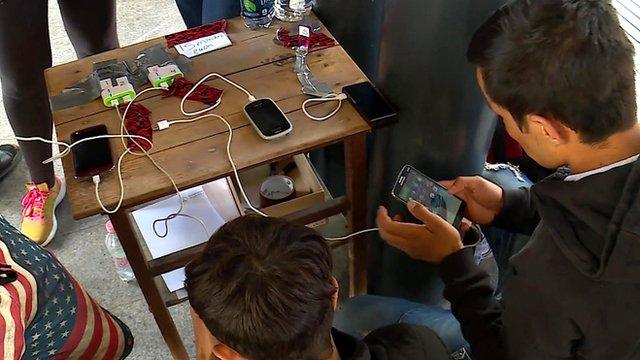Refugees without phones 'unable to get support in lockdown'
- Published
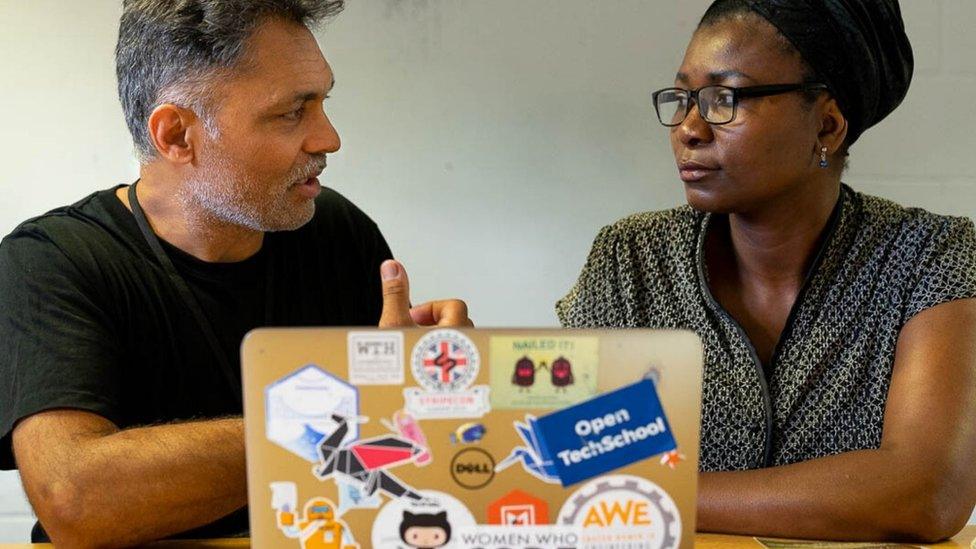
Bristol Refugee Rights said access to phone credit, data and the internet is a "basic right"
Refugees and asylum seekers are unable to access "vital support" due to their lack of digital tools, phone credit and data in lockdown, a charity has said.
Bristol Refugee Rights said since having to stop face-to-face support many of the 3,000 people it helps could not be reached.
The charity has started a crowdfunding campaign to buy phones and credit, saying they are a "basic right".
It said it would allow it to continue providing services by phone and online.
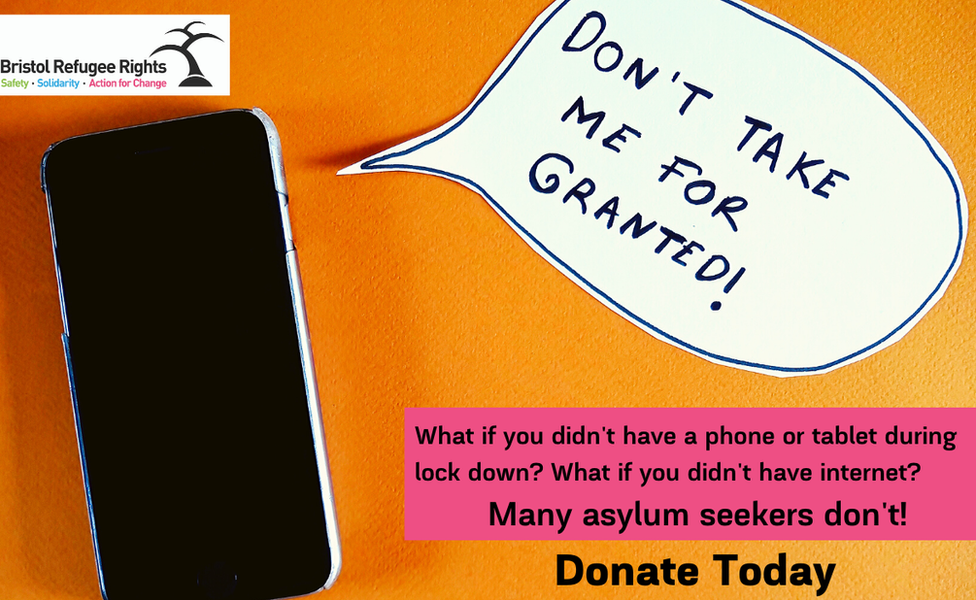
More than 3,000 people in the city use the services provided by Bristol Refugee Rights
Asli Tatliadim, from Bristol Refugee Rights, said since lockdown they had to close face-to-face services including a welcome centre, English classes and creche.
After making their services digital, she said it became clear many of the service users had become "even more isolated".
She said: "Many people can't afford data and phone credit. They might not have enough money for food.
"They may have children who don't have a computer, so can't keep up with school work online. Some people can't speak English."
Annika, from Namibia, who did not want to give her real name, lives alone with her five-year-old daughter with special educational needs.
'I can't sleep'
She was recently refused asylum in the UK, meaning her weekly Home Office allowance is £35.39 - her daughter also receives the same amount.
Annika said that meant she had to choose between food, clothing, toiletries and all other expenses. She has no access to phone credit or data.
She said: "I can't sleep. I am finding it so hard. I need help with my daughter."
Another couple, who recently arrived in Bristol from Ukraine, had not had time to build up a support network before lockdown.
Petro has PTSD and Sofia has an auto-immune disease, they need help with a solicitor for their on-going asylum case, their accommodation and also help with accessing free prescriptions for essential medication - and neither of them speaks English very well.
Sofia said: "I need to have support calls each week because I struggle without an interpreter."
- Published15 April 2020
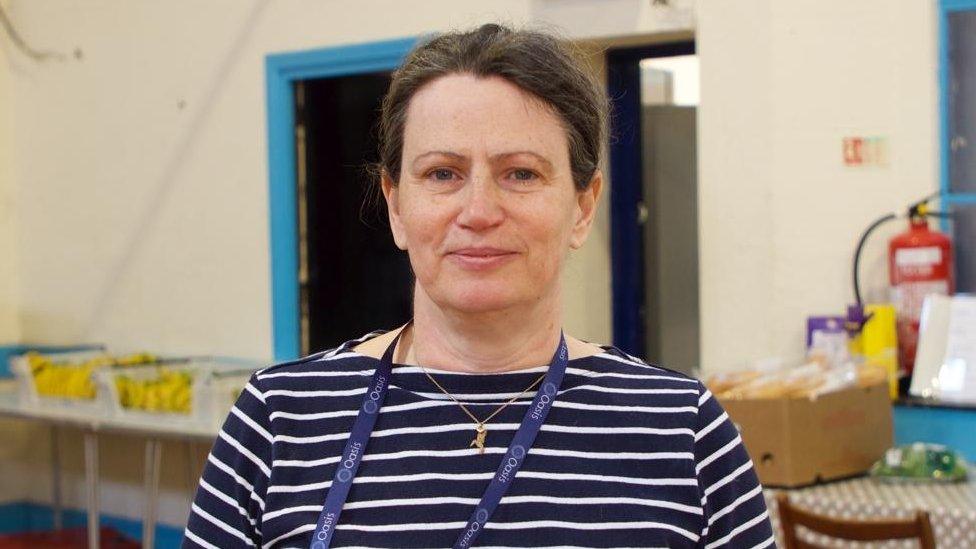
- Published12 March 2019
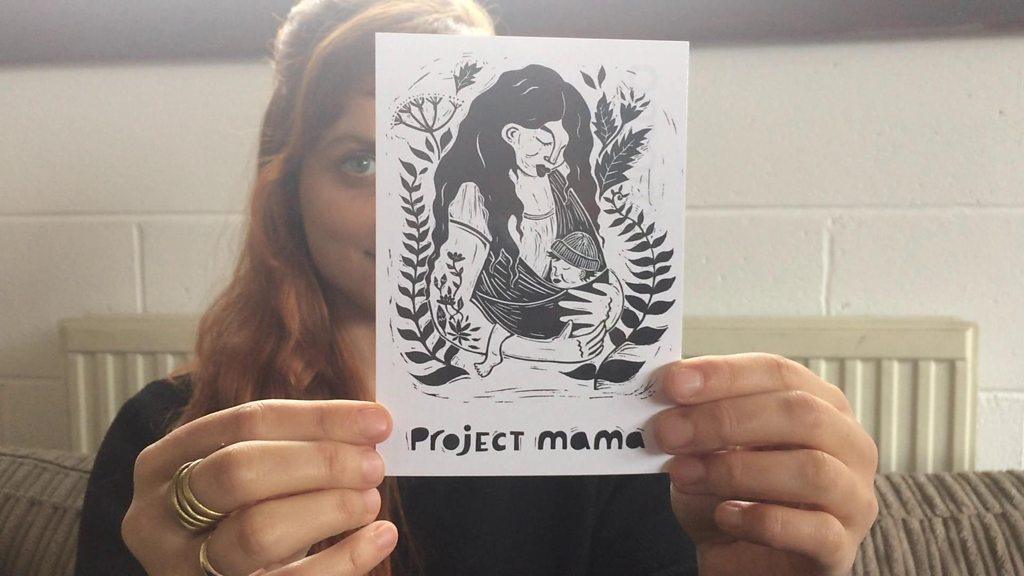
- Published7 September 2015
